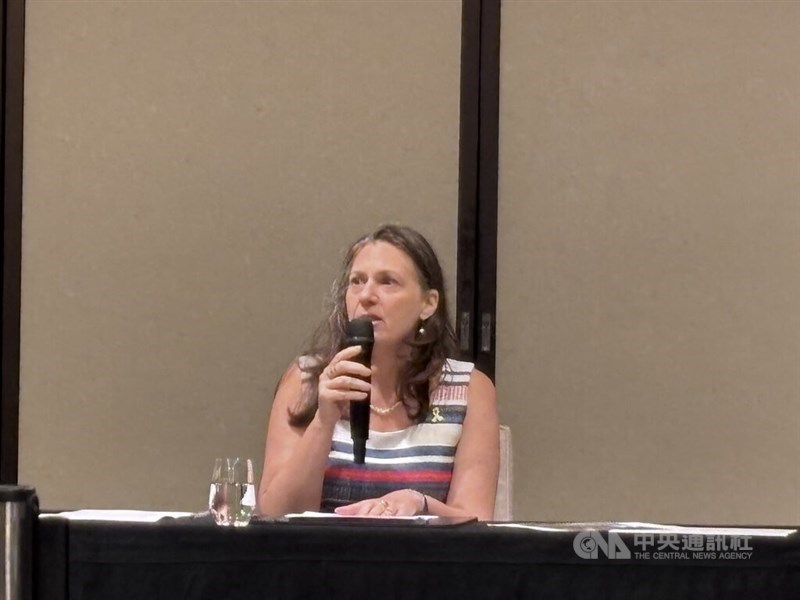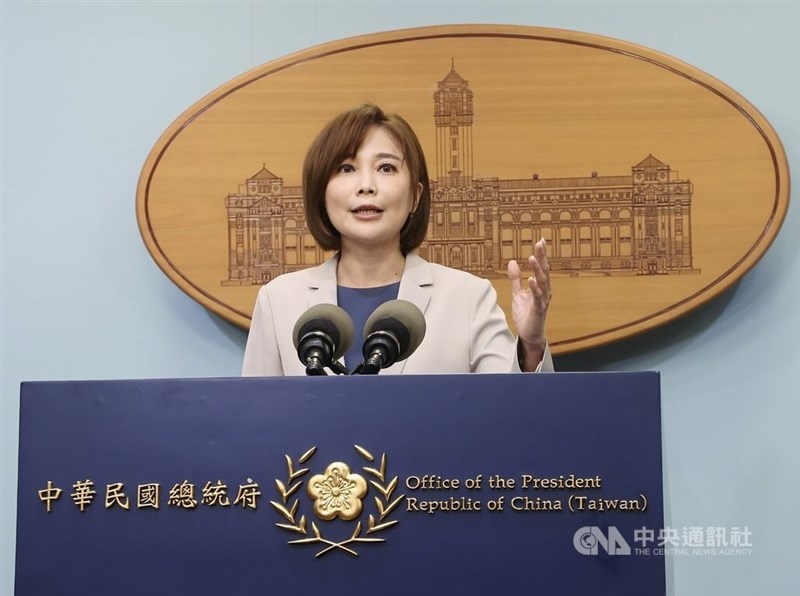
Taipei, June 23 (CNA) Israel's top envoy to Taiwan on Monday defended her country's decision to attack Iran, saying the ongoing military actions are an "act of self-defense" on Israel's part before Iran builds atomic bombs.
"For us, defending our country is something that we must do, and we needed to act on time before it's too late, before they [Iran] have a nuclear atomic bomb," Maya Yaron, representative of the Israeli Economic and Cultural Office in Taipei (ISECO), told at a briefing in Taipei.
The ongoing Operation Rising Lion aims to neutralize the nuclear and the ballistic missile program so that Israel no longer has an existential immediate threat, she said.
The envoy said Israel is smaller in size and has a smaller population than Taiwan and is facing a threat from Iran with 10,000 missiles being built against it.
She also said that Iran is a "radical Islamist regime," "a dictatorship," and "the most repressive government in the world."
"Everything that you know about Taiwan's way of life, about Taiwan's vibrant democracy, does not exist in Iran. No women's rights, no LGBTQI, no freedom of press, no freedom of speech. There is no democracy. There is only oppression. This is a terrorist regime that is acting against its own people."
"If we who belong to the free world and we are in this community together, we must remain aware and we must be united in front of any tactics that try to distort us from this truth," she said, while commenting on the ongoing misinformation campaign on the Israel-Iran war.
"There is no other alternative. We cannot have this regime have nuclear weapons," she added.
However, Israel's Prime Minister Benjamin Netanhayu has made multiple claims about the "imminent threat" of Iran developing nuclear weapons dating back to 1992.
On March 25, U.S. Director of National Intelligence Tulsi Gabbard speaking at the Senate Select Committee on Intelligence hearing for the Annual Threat Assessment of the U.S. Intelligence Community said Iran was not building nuclear weapons and had not resumed its suspended 2003 nuclear weapons program.
In addition, asked whether Iran was developing nuclear weapons International Atomic Energy Agency (IAEA) head Rafael Grossi said in a recent interview with CNN "We did not have any proof of a systematic effort to move into a nuclear weapon."
Moreover, Israel is widely believed to have its own extensive nuclear weapons program, but unlike Iran has not signed the Treaty on the Non-Proliferation of Nuclear Weapons and does not grant the IAEA full access to its nuclear facilities.
The ongoing armed conflict between Israel and Iran began on June 13, when Israel launched a series of attacks on key Iranian military and nuclear facilities, killing some of Iran's top military leaders, nuclear scientists, and politicians.
Iran retaliated by launching missiles at military sites and cities in Israel.
For the first few days of the war, the United States refrained from military activity other than defending Israel against incoming missiles and drones, but on June 22, it bombed three Iranian nuclear sites.
Following unprecedented U.S. strikes on Iranian nuclear facilities, Tehran said on Sunday that the U.S. would "receive a response" and all American bases in the Middle East were "legitimate targets," hinting at a potential wider conflict.

In Taipei, Presidential Office spokesperson Karen Kuo (郭雅慧) said Sunday that the government's national security team has been keeping close tabs on the escalating tensions in the Middle East and regularly brief it to President Lai Ching-te (賴清德).
Lai has instructed the national security team and the executive branch to continue to pay close attention to possible developments and respond effectively to potential impacts on the global political and economic markets.
Taiwan's government will also continue to maintain close contact with its allies to ensure the overall stability of the situation and the safety of the people of Taiwan, Kuo added.
- Business
Taiwan shares close up 0.34%
07/31/2025 02:06 PM - Politics
Taiwan, U.S. complete 'technical consultations' on trade: Cabinet
07/31/2025 02:02 PM - Society
2 dead, 3 critical in Taichung beef noodle shop fire
07/31/2025 01:31 PM - Society
Heavy rain to continue in central, southern Taiwan Thursday: CWA
07/31/2025 12:57 PM - Science & Tech
Taiwan to launch 3 locally made CubeSats in October
07/31/2025 11:00 AM